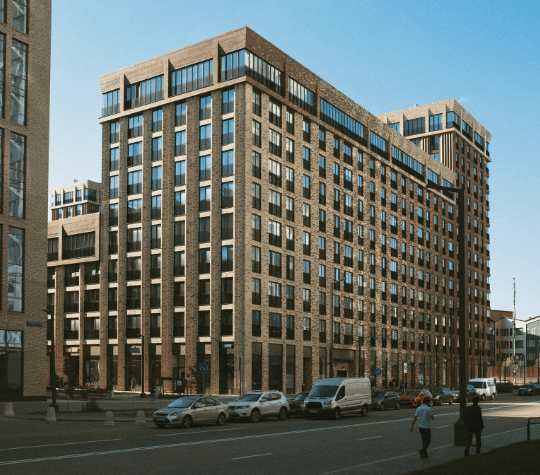Dozens of organisations have signed an open letter calling on the government to scrap office-to-residential conversions in England, which analysis has found led to the loss of almost 28,000 affordable homes.
Local government campaigners, housing providers and homelessness charities have all joined the call to abolish some permitted development rights (PDR), which grant automatic planning permission to building projects and are often used to convert office blocks into housing.
A major point of contention is that PDR developments are not required to make affordable housing contributions. New analysis by the Local Government Association (LGA) has found that nearly 28,000 affordable homes have been lost due to office-to-residential conversions under PDR in the past 11 years.
An amendment to the planning and infrastructure bill – the government’s flagship planning changes designed to speed up housebuilding – that would remove many PDR allowances is being debated in parliament on Monday.
Dorothy Thornhill, a vice-president of the LGA who brought the amendment, said: “The impact of certain PDR rules has gone much further than was ever anticipated when they were first brought in. It is time they were scrapped. Councils and communities are losing out significantly because developers are able to circumvent the democratic planning process.”
A letter signed by 39 campaigners, experts and groups, including Shelter, the Town and Country Planning Association, the National Association of Local Councils and the Association of Directors of Public Health, calls on the government to support the amendment.
The letter calls the PDR policy “indefensible” and says the government needs to “ensure that the homes built today are not the poor-quality housing problems of tomorrow”.
“Many would not meet the most basic fire safety and habitability standards had they been subject to the planning process,” the letter states.
“Communities lose twice: on the quality and suitability of the homes, and on the schools, transport, green spaces and health services that make neighbourhoods thrive.”
The LGA estimates more than 110,000 new houses have been converted from offices under PDR since 2013, meaning councils were unable to enforce affordable housing contributions, or ensure the new homes were good quality, climate resilient or suitably located.
Studies have shown that homes created through PDR are more likely to be substandard, smaller, darker, poorly ventilated and in unsuitable locations such as industrial estates and business parks.
In Bristol, there is a campaign to stop people being housed in a former office block that the housing charity Shelter says has been plagued with issues of damp, mould, disrepair, overcrowding, antisocial behaviour and rat infestations.
More than 500 people, including local GPs and charities, signed an open letter calling on Bristol city council to move people out of Imperial Apartments, a three-storey office block converted into 466 flats under PDR.
Residents report the heavy security and fire doors from its office days make it unsuitable for family living, and say the walls are thin and poorly insulated.
LGA analysis found that a quarter of the 130,000 families living in temporary accommodation could be living in an affordable home if office conversions had contributed to affordable housing targets.
Louise Gittins, the chair of the LGA, said the amendment “could be a game-changer”. She said: “PDR allows developers to avoid contributing to affordable housing in the local area, which has a real-world impact. A quarter of families in temporary accommodation could be permanently housed.”
A spokesperson for the Ministry of Housing, Communities and Local Government said: “The government is delivering the biggest boost to social and affordable housing in a generation, backed by £39bn investment.
“We recognise there have been criticisms of delivering homes using permitted development rights, and that is why we continue to keep these rights under review.”



